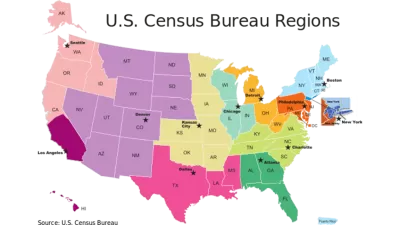One solution to urban food security is surprisingly simple: gathering fruit from backyard trees.
Tens of millions of pounds of edible fruits often go to waste in cities because owners of backyard trees can't make use of all they produce. Now "gleaner groups" are organizing to harvest this bounty to feed people in need; but are finding the concept is so popular it's hard to keep up with demand. As Sena Christian writes on Alternet,
"Typically, a single fruit tree will produce 200 to 300 pounds a year, making community-gleaning groups the low-hanging fruit to addressing food access. And with the social benefit and personal satisfaction high, the idea has caught on like wildfire across the United States. Groups exist in Oregon, Washington, Idaho, Hawaii, Massachusetts, Florida, Kentucky, Pennsylvania and there are 14 in California. The Society of St. Andrew gleans all over the country.
Increasingly, though, these gleaning groups learn that the positive work they do is a double-edged sword, as more trees and interested homeowners exist than some of these typically volunteer-run groups can handle."
FULL STORY: Urban Harvesters Scavenge Backyards to Feed the Hungry

Alabama: Trump Terminates Settlements for Black Communities Harmed By Raw Sewage
Trump deemed the landmark civil rights agreement “illegal DEI and environmental justice policy.”

Planetizen Federal Action Tracker
A weekly monitor of how Trump’s orders and actions are impacting planners and planning in America.

How Atlanta Built 7,000 Housing Units in 3 Years
The city’s comprehensive, neighborhood-focused housing strategy focuses on identifying properties and land that can be repurposed for housing and encouraging development in underserved neighborhoods.

In Both Crashes and Crime, Public Transportation is Far Safer than Driving
Contrary to popular assumptions, public transportation has far lower crash and crime rates than automobile travel. For safer communities, improve and encourage transit travel.

Report: Zoning Reforms Should Complement Nashville’s Ambitious Transit Plan
Without reform, restrictive zoning codes will limit the impact of the city’s planned transit expansion and could exclude some of the residents who depend on transit the most.

Judge Orders Release of Frozen IRA, IIJA Funding
The decision is a victory for environmental groups who charged that freezing funds for critical infrastructure and disaster response programs caused “real and irreparable harm” to communities.
Urban Design for Planners 1: Software Tools
This six-course series explores essential urban design concepts using open source software and equips planners with the tools they need to participate fully in the urban design process.
Planning for Universal Design
Learn the tools for implementing Universal Design in planning regulations.
Jessamine County Fiscal Court
Caltrans
Institute for Housing and Urban Development Studies (IHS)
City of Grandview
Harvard GSD Executive Education
Toledo-Lucas County Plan Commissions
Salt Lake City
NYU Wagner Graduate School of Public Service





























